Autoimmune Disease
How to submit an article:
- Registered users can submit any published journal article that has a unique DOI (Digital Object Identifier) name or link to Research Hub.
- For example, you can paste the full DOI link:
https://doi.org/10.1109/5.771073or just the DOI name:10.1109/5.771073into the field above and click submit. - The person who is first to submit a valid article to Research Hub will forever be credited for it, and every article submission earns you +6 Research Points.
An autoimmune disease is a condition in which the immune system mistakenly attacks and damages the body's own tissues and organs, leading to chronic inflammation and tissue damage.
Sub-Topics:
Related Topics
Published research studies are articles that present the findings of original research that has undergone a peer-review process and has been made publicly available in scholarly journals, books or other media.
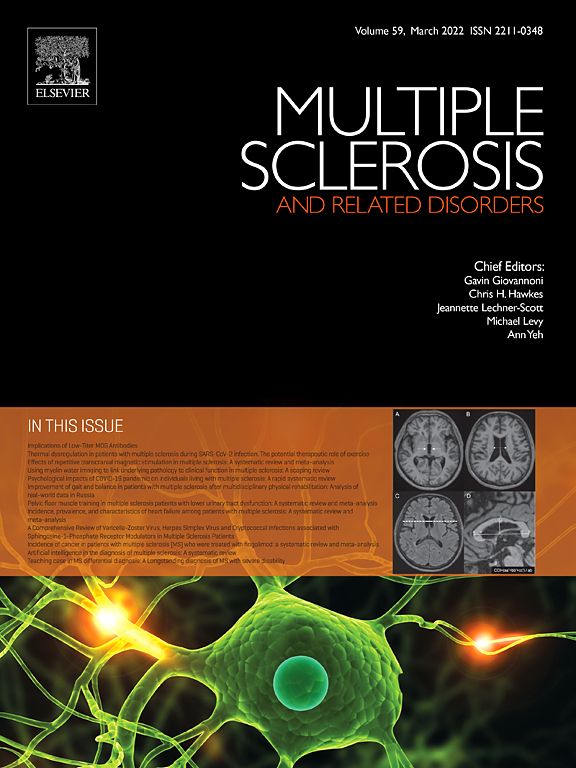
Effects of Acupuncture on Fatigue, Disability, Psychological Problems, and Sleep Quality in People with Relapsing-Remitting Multiple Sclerosis: A Randomized Controlled Trial
2023 Dec Multiple Sclerosis and Related Disorders Khodaie F, Moghadasi AN, Zhao B, Saeedi R
Twelve weeks of acupuncture treatment was effective in reducing fatigue, sleep latency, use of sleeping medication, somatization, obsessive-compulsive, depression, and paranoid disorders in people with RRMS.
Randomised Controlled Trial Multiple Sclerosis Acupuncture Sleep
Intermittent fasting: A promising dietary intervention for autoimmune diseases
2023 Oct Autoimmunity Reviews Barati M, Ghahremani A, Namdar Ahmadabad H
Systematic Review Intermittent Fasting Type 1 Diabetes Autoimmune Diseases Rheumatoid ArthritisIntermittent fasting may potentially influence autoimmune diseases like type 1 diabetes and rheumatoid arthritis, by reducing inflammation and supporting cellular repair mechanisms.

Nutrition and its role in prevention and management of rheumatoid arthritis
2023 Jul Autoimmunity Reviews Nikiphorou E, Philippou E
Review Article Mediterranean Diet Sardine Omega-3 Fatty AcidsNutrition, particularly an anti-inflammatory Mediterranean diet supplemented with oily fish and omega-3 supplements, can potentially reduce inflammation and improve symptoms of rheumatoid arthritis.

Potential Targets and Mechanisms of Jiedu Quyu Ziyin Decoction for Treating SLE-GIOP: Based on Network Pharmacology and Molecular Docking
2023 Mar 28 Journal of Immunology Research Li J, Chang R, Chen L, Qian S, Wang R, Lan J, et al.
The study identified 58 potential targets of JP in the treatment of SLE-GIOP, with five core targets being MAPK1, TP53, and MYC. Enrichment analysis revealed involvement in biological processes related to osteoblast proliferation and differentiation, and molecular docking indicated strong binding of JP with MAPK1, TP53, and MYC.
Network Pharmacology Systemic Lupus Erythematosus Jie Du Qu Yu Zi Yin Decoction
Effectiveness of acupuncture for fatigue in patients with relapsing-remitting multiple sclerosis: a randomized controlled trial
2023 Feb 01 Acupuncture in Medicine Khodaie F, Naser Moghadasi A, Kazemi AH, Zhao B
Acupuncture combined with amantadine and routine care, compared with amantadine and routine care alone, appears to be an effective short-term treatment for reducing fatigue and enhancing quality of life, including physical function and mental status, in patients with RRMS.
Randomised Controlled Trial Multiple SclerosisResearch insights are moderated by the Research Hub team and offer an at-a-glance overview of interesting research findings.

2023 Autoimmunity Reviews
Intermittent fasting may potentially influence autoimmune diseases like type 1 diabetes and rheumatoid arthritis, by reducing inflammation and supporting cellular repair mechanisms.
Systematic Review Autoimmune Diseases Intermittent Fasting Rheumatoid Arthritis Type 1 Diabetes
Intermittent fasting: A promising dietary intervention for autoimmune diseases
Barati M, Ghahremani A, Namdar Ahmadabad H

2023 Autoimmunity Reviews
Nutrition, particularly an anti-inflammatory Mediterranean diet supplemented with oily fish and omega-3 supplements, can potentially reduce inflammation and improve symptoms of rheumatoid arthritis.
Review Article Mediterranean Diet Omega-3 Fatty Acids Sardine
Nutrition and its role in prevention and management of rheumatoid arthritis
Nikiphorou E, Philippou E
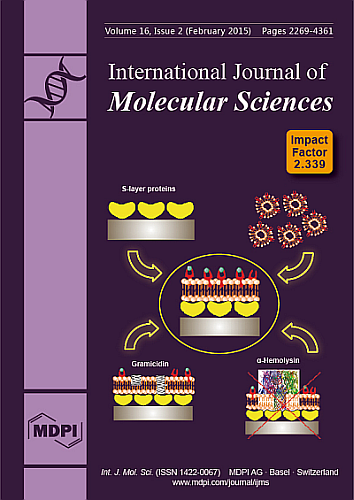
2022 International Journal of Molecular Sciences
Magnesium, essential for harmonising nerve signals and preserving the blood-brain barrier, may be linked to neurodegenerative disorders when its balance is disrupted.
Review Article Alzheimer's Disease Magnesium Multiple Sclerosis Neurodegenerative Diseases Parkinson's Disease
Magnesium and the Brain: A Focus on Neuroinflammation and Neurodegeneration
Maier JAM, Locatelli L, Fedele G, Cazzaniga A, Mazur A

2022 Molecules
Green tea's catechins demonstrate therapeutic effects against neurodegenerative diseases via anti-inflammatory, antioxidant actions, and activating diverse brain cellular pathways.
Review Article Alzheimer's Disease Cognitive Function Green Tea Multiple Sclerosis Neurodegenerative Diseases
Green Tea Catechins Attenuate Neurodegenerative Diseases and Cognitive Deficits
Afzal O, Dalhat MH, Altamimi ASA, Rasool R, Alzarea SI, Almalki WH, et al.

2022 Multiple Sclerosis and Related Disorders
Acupuncture, when used as an integrative therapy in conjunction with traditional treatments, significantly improves the quality of life in patients with Multiple Sclerosis.
Review Article Multiple Sclerosis
Acupuncture for multiple sclerosis: A literature review
Khodaie F, Abbasi N, Kazemi Motlagh AH, Zhao B, Naser Moghadasi A
Review Articles
Review articles summarise and critically evaluate the current state of research on a specific topic or field by synthesising multiple primary research studies.

Intermittent fasting: A promising dietary intervention for autoimmune diseases
2023 Oct Autoimmunity Reviews Barati M, Ghahremani A, Namdar Ahmadabad H
Systematic Review Intermittent Fasting Type 1 Diabetes Autoimmune Diseases Rheumatoid ArthritisIntermittent fasting may potentially influence autoimmune diseases like type 1 diabetes and rheumatoid arthritis, by reducing inflammation and supporting cellular repair mechanisms.

Nutrition and its role in prevention and management of rheumatoid arthritis
2023 Jul Autoimmunity Reviews Nikiphorou E, Philippou E
Review Article Mediterranean Diet Sardine Omega-3 Fatty AcidsNutrition, particularly an anti-inflammatory Mediterranean diet supplemented with oily fish and omega-3 supplements, can potentially reduce inflammation and improve symptoms of rheumatoid arthritis.

Magnesium and the Brain: A Focus on Neuroinflammation and Neurodegeneration
2022 Dec 23 International Journal of Molecular Sciences Maier JAM, Locatelli L, Fedele G, Cazzaniga A, Mazur A
Review Article Alzheimer's Disease Neurodegenerative Diseases Multiple Sclerosis Parkinson's Disease MagnesiumMagnesium, essential for harmonising nerve signals and preserving the blood-brain barrier, may be linked to neurodegenerative disorders when its balance is disrupted.

Green Tea Catechins Attenuate Neurodegenerative Diseases and Cognitive Deficits
2022 Nov 06 Molecules Afzal O, Dalhat MH, Altamimi ASA, Rasool R, Alzarea SI, Almalki WH, et al.
Review Article Green Tea Cognitive Function Multiple Sclerosis Parkinson's Disease Neuroprotective Alzheimer's Disease Neurodegenerative DiseasesGreen tea's catechins demonstrate therapeutic effects against neurodegenerative diseases via anti-inflammatory, antioxidant actions, and activating diverse brain cellular pathways.

Acupuncture for multiple sclerosis: A literature review
2022 Apr 26 Multiple Sclerosis and Related Disorders Khodaie F, Abbasi N, Kazemi Motlagh AH, Zhao B, Naser Moghadasi A
Review Article Multiple SclerosisAcupuncture, when used as an integrative therapy in conjunction with traditional treatments, significantly improves the quality of life in patients with Multiple Sclerosis.
Clinical Trials
Clinical trials are research studies that involve people and are conducted to evaluate the safety and efficacy of new treatments or interventions, such as drugs, medical devices, or behavioural therapies.

Effects of Acupuncture on Fatigue, Disability, Psychological Problems, and Sleep Quality in People with Relapsing-Remitting Multiple Sclerosis: A Randomized Controlled Trial
2023 Dec Multiple Sclerosis and Related Disorders Khodaie F, Moghadasi AN, Zhao B, Saeedi R
Twelve weeks of acupuncture treatment was effective in reducing fatigue, sleep latency, use of sleeping medication, somatization, obsessive-compulsive, depression, and paranoid disorders in people with RRMS.
Randomised Controlled Trial Multiple Sclerosis Acupuncture Sleep
Effectiveness of acupuncture for fatigue in patients with relapsing-remitting multiple sclerosis: a randomized controlled trial
2023 Feb 01 Acupuncture in Medicine Khodaie F, Naser Moghadasi A, Kazemi AH, Zhao B
Acupuncture combined with amantadine and routine care, compared with amantadine and routine care alone, appears to be an effective short-term treatment for reducing fatigue and enhancing quality of life, including physical function and mental status, in patients with RRMS.
Randomised Controlled Trial Multiple SclerosisStudy Protocols
Published study protocols are detailed plans that outline the objectives, methodology, statistical analyses, and organisation of a research study that have been made publicly available for others to review and use as a reference.
Presentation Slides

Systematic Review
Intermittent fasting may potentially influence autoimmune diseases like type 1 diabetes and rheumatoid arthritis, by reducing inflammation and supporting cellular repair mechanisms.
Barati M, Ghahremani A, Namdar Ahmadabad H

Review Article
Nutrition, particularly an anti-inflammatory Mediterranean diet supplemented with oily fish and omega-3 supplements, can potentially reduce inflammation and improve symptoms of rheumatoid arthritis.
Nikiphorou E, Philippou E

Review Article
Magnesium, essential for harmonising nerve signals and preserving the blood-brain barrier, may be linked to neurodegenerative disorders when its balance is disrupted.
Maier JAM, Locatelli L, Fedele G, Cazzaniga A, Mazur A

Review Article
Green tea's catechins demonstrate therapeutic effects against neurodegenerative diseases via anti-inflammatory, antioxidant actions, and activating diverse brain cellular pathways.
Afzal O, Dalhat MH, Altamimi ASA, Rasool R, Alzarea SI, Almalki WH, Murtaza BN, Iftikhar S, Nadeem S, Nadeem MS, Kazmi I

Review Article
Acupuncture, when used as an integrative therapy in conjunction with traditional treatments, significantly improves the quality of life in patients with Multiple Sclerosis.
Khodaie F, Abbasi N, Kazemi Motlagh AH, Zhao B, Naser Moghadasi A
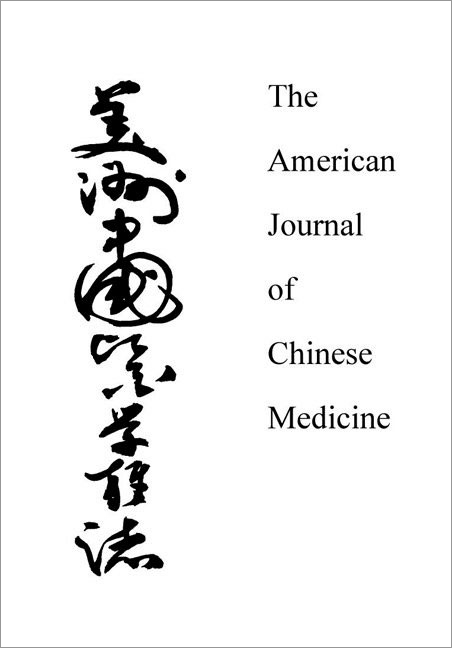
Review Article
Acupuncture shows promising results in managing autoimmune diseases by potentially regulating immune responses.
Jing Wang, Fangyi Zhu, Wei Huang, Zhengyi Chen, Ping Zhao, Yanting Lei, Yumei Liu, Xijun Liu, Bo Sun, Hulun Li
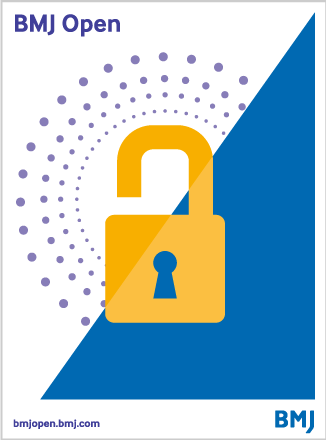
Cohort Study
Vitamin D and Omega 3 fatty acids supplementation appears to reduce the risk of autoimmune diseases.
Hahn J, Cook NR, Alexander EK, Friedman S, Walter J, Bubes V, Kotler G, Lee IM, Manson JAE, Costenbader KH
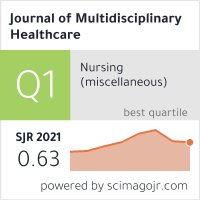
Cohort Study
Adding Chinese herbal medicines to routine treatment was found to be related to lower fracture risk in rheumatoid arthritis patients.
Liao HH, Livneh H, Chung YJ, Lin CH, Lai NS, Yen HR, Tsai TY
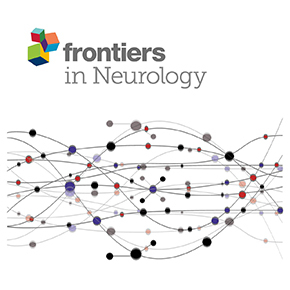
Systematic Review
Traditional Chinese herbal medicine shows promising efficacy in improving clinical symptoms and reducing recurrence of multiple sclerosis.
Seo Y, Jin C, Cho S-Y, Park S-U, Jung W-S, Moon S-K, Park J-M, Ko C-N, Cho K-H and Kwon S
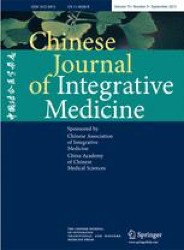
Systematic Review
Chinese herbal medicine presents beneficial effects in controlling disease activity and lowering glucocorticoid dosage in systemic lupus erythematosus patients.
Wang Y, Han M, Pedigo CE, Xie Z, Wang W, Liu J
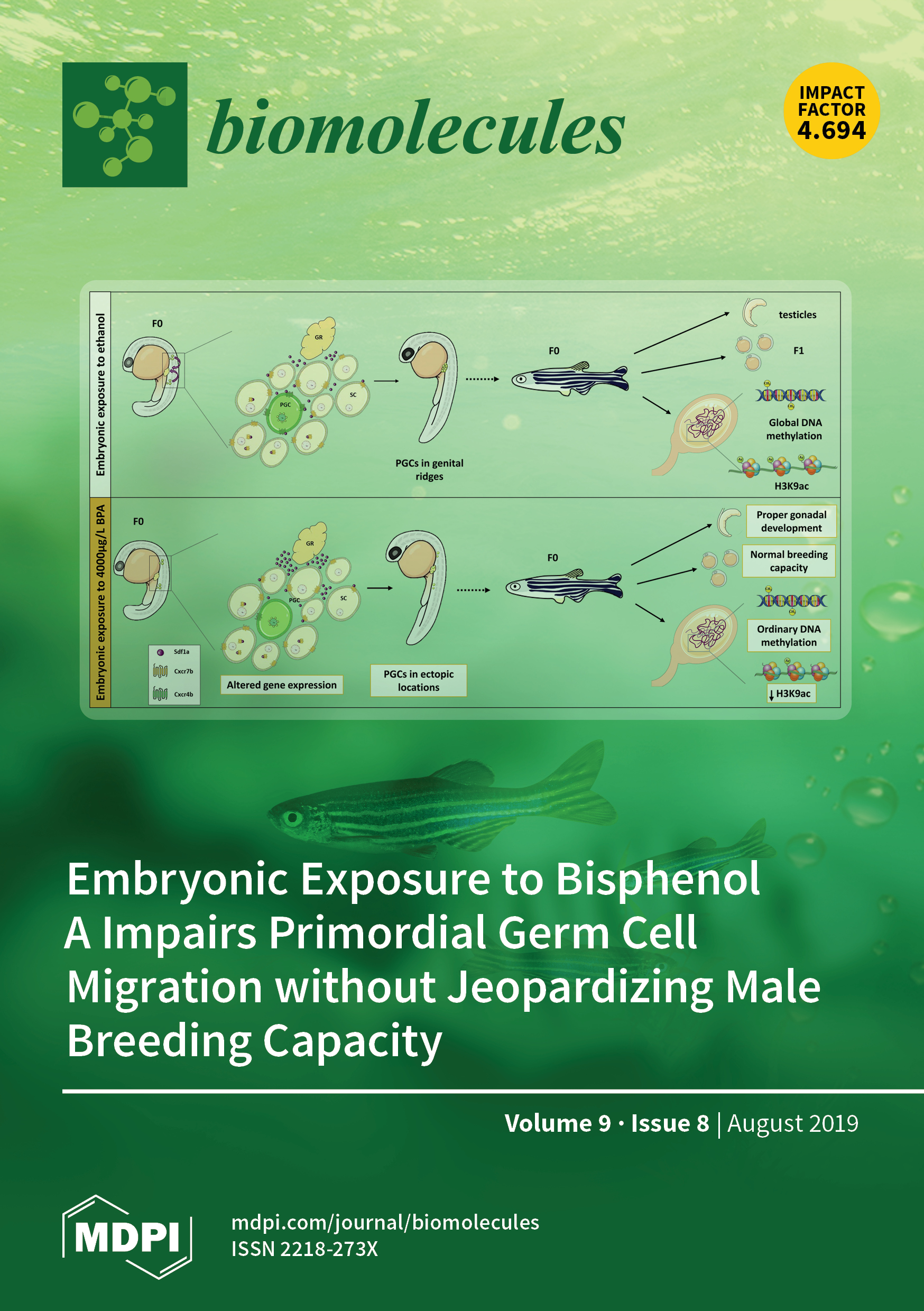
Review Article
Avocado and soybean unsaponifiables may effectively reduce inflammation and symptoms related to osteoarthritis, autoimmune diseases, and menopause.
Salehi B, Rescigno A, Dettori T, Calina D, Docea AO, Singh L, Cebeci F, Özçelik B, Bhia M, Dowlati Beirami A, Sharifi-Rad J, Sharopov F, C. Cho W, Martins N

Network Pharmacology
Traditional Chinese medicine (TCM) holds potential to regulate immune-mediated inflammatory diseases by adjusting the imbalance of the Th17/Treg axis.
Xu YY, Wang DM, Liang HS, Liu ZH, Li JX, Wang MJ, Chen XM, Balak DMW, Radstake TRDJ, Huang RY, Lu CJ

Systematic Review
There is a significant effect of Chinese herbal medicine for improving Expanded Disability Status Score, annual relapse frequency and the total clinical efficacy rate for multiple sclerosis compared with western conventional treatment.
Liang Song, Qi-hui Zhou, Hui-lin Wang, Feng-jiao Liao, Liang Hua, Hong-feng Zhang, Li-bo Huang, Yan Lin, Guo-qing Zheng

Review Article
Despite methodological shortcomings, existing studies suggest acupuncture may improve symptoms related to Multiple Sclerosis including quality of life, fatigue, spasticity, and pain.
H. I. Karpatkin et al.

Clinical Study
Traditional Chinese medical prescriptions showed a correlation with pattern diagnosis in the treatment of systemic lupus erythematosus.
Liu CY, Wu WH, Huang TP, Lee TY, Chang HH
Executive Summary
Write an executive summary in the form of a blog article on the topic of "Research into Chinese medicine treatment for Autoimmune Disease" summarising the research below and using language that can be easily understood by patients and avoiding medical jargon using a professional and caring tone of voice.
Write an executive summary in the form of a blog article on the topic of "Researched Chinese medicine treatments for Autoimmune Disease" summarising the research below in an objective and easy to understand way, and using language that can be easily understood by patients. Group the article into Chinese medicine treatments first, followed by nutrition and other treatments. Avoid using medical jargon and use a professional and caring tone of voice.
Write me a concise but easy to understand executive summary on the topic of "Chinese medicine treatments for Autoimmune Disease" based on the following research that I will give you. Your summary should be 2 paragraphs long in Australian English spelling and include references to the studies.
A Systematic Review published in 2023 in the journal Autoimmunity Reviews found that Intermittent fasting may potentially influence autoimmune diseases like type 1 diabetes and rheumatoid arthritis, by reducing inflammation and supporting cellular repair mechanisms. Extensive research was done through several electronic databases such as PubMed, Scopus, Embase, and Web of Science. Rigorous inclusion criteria were applied to filter the most relevant studies on the effects of intermittent fasting on autoimmune diseases. No reference to further research trials was mentioned in the methodology. The results indicate a potential link between intermittent fasting and the management of certain autoimmune diseases. Autoimmune diseases like type 1 diabetes, rheumatoid arthritis, and systemic lupus erythematosus exhibited improvements owing to the reduction in inflammatory markers, improvement in gut microbiota, and enhanced cellular repair resulting from autophagy induced by intermittent fasting. However, results concerning other autoimmune diseases like multiple sclerosis, systemic lupus erythematosus, thyroid diseases, and psoriasis were inconclusive.
A Review Article published in 2023 in the journal Autoimmunity Reviews found that Nutrition, particularly an anti-inflammatory Mediterranean diet supplemented with oily fish and omega-3 supplements, can potentially reduce inflammation and improve symptoms of rheumatoid arthritis. The review examines evidence indicating a possible connection between nutrition and the risk and management of rheumatoid arthritis, an autoimmune disease having an immune-inflammatory response. The impact of different food types was considered, including pro-inflammatory and anti-inflammatory foods. Specifically, the research highlights the effectiveness of a Mediterranean diet, rich in fish and supplemented with omega-3 polyunsaturated fatty acids, in reducing inflammation and oxidation. Other factors such as herbs and spices, beverages, vitamin D, and probiotics were also taken into account. The research emphasizes the direct and indirect role of nutrition through the management of co-morbidity. The disease activity was observed to improve with dietary changes, particularly a propensity to reduce inflammation, oxidation, and beneficial effects on gut microbiota. An anti-inflammatory Mediterranean diet, supplemented with consumption of oily fish at least twice a week, and daily intake of omega-3 polyunsaturated fatty acid supplements of 2 g, has been recommended. The study also highlights the importance of rheumatologists working closely with registered dietitians to support patients in managing a well-balanced diet according to their individual needs.
A Review Article published in 2022 in the journal International Journal of Molecular Sciences found that Magnesium, essential for harmonising nerve signals and preserving the blood-brain barrier, may be linked to neurodegenerative disorders when its balance is disrupted. The researchers performed a narrative review, beginning with a quick overview of the role of magnesium in the brain. Magnesium is crucial for healthy nerve signal transmission and the upkeep of the blood-brain barrier, which protects the brain from harmful substances in the blood. Then, they discussed evidence suggesting a connection between disrupted magnesium balance and a variety of neurodegenerative disorders. In the discussion of the results, it was posited that a deficiency in magnesium might contribute to low-grade systemic inflammation, which is common in many illnesses. Specifically, they argued that such inflammation in the brain is a characteristic feature of neurodegenerative diseases. The review found evidence that disruptions in the body's magnesium balance could be associated with multiple sclerosis, Alzheimer's, and Parkinson's diseases.
A Review Article published in 2022 in the journal Molecules found that Green tea's catechins demonstrate therapeutic effects against neurodegenerative diseases via anti-inflammatory, antioxidant actions, and activating diverse brain cellular pathways. The research primarily evaluates the effect of polyphenolic compounds found in green tea, known as catechins, on neurodegenerative diseases. By conducting several interventional and observational studies on humans, the research explores the anti-cancer, anti-obesity, antidiabetic, anti-inflammatory, and neuroprotective properties of these compounds. The biological, pharmacological, antioxidant, and metal chelating abilities of catechins, particularly their influence on different cellular pathways within the brain, are intensively studied. The results elucidate that catechins exhibit multiple neuroprotective effects. Their anti-inflammatory and antioxidant properties help to inhibit excessive production of cytokines, and inflammatory pathways, while also controlling metal ions and free radicals. Researchers have further established that catechins may curb the phosphorylation of the tau protein and aggregation of amyloid beta, both key markers in neurodegenerative diseases. Additionally, these compounds show potential in reducing alpha-synuclein levels and augmenting dopamine levels. Hence, they significantly contribute to the prevention and treatment of neurodegenerative diseases, including Alzheimer's, Parkinson's, multiple sclerosis, and cognitive deficits.
A Review Article published in 2022 in the journal Multiple Sclerosis and Related Disorders found that Acupuncture, when used as an integrative therapy in conjunction with traditional treatments, significantly improves the quality of life in patients with Multiple Sclerosis. In the methodology of this study, the PUBMED database was meticulously searched in September 2021, for English articles or at least ones with English abstracts, surfacing every article published from the inception of the literature up until the latter part of 2021. The search terms included keywords such as 'acupuncture', 'electroacupuncture', and 'multiple sclerosis' in the titles and abstracts. Out of the 75 articles discovered, just a little over a third, precisely 31 articles, were incorporated into this study. The discovery from the methodology outlined was that acupuncture provides an array of benefits for Multiple Sclerosis patients. These benefits are primarily seen in the regulation of the neuro-immune system, enhancement of life quality, fatigue reduction, improved bladder functionality, diminished limb spasm and pain, deceleration of disease progression, and decreased relapses. Traditional Chinese acupuncture and scalp acupuncture were observed to be particularly helpful in alleviating Multiple Sclerosis symptoms such as fatigue, neural functional deficits, pain, gait abnormalities, and bladder dysfunction, alongside reducing relapse occurrences. This makes acupuncture a viable integrated therapy option for patients with Multiple Sclerosis.
A Review Article published in 2022 in the journal The American Journal of Chinese Medicine found that Acupuncture shows promising results in managing autoimmune diseases by potentially regulating immune responses. The methodology of the study involved a comprehensive review of how acupuncture, a form of traditional Chinese medicine, may be employed as a treatment method for autoimmune diseases such as multiple sclerosis, rheumatoid arthritis, and inflammatory bowel disease. The research was based on existing knowledge and accumulating data, investigating the role of acupuncture in regulating immune responses during these conditions. The discussion of the results revealed that acupuncture showed promise in managing these diseases. It was noted that the positive outcomes observed might be linked to the potential of acupuncture to regulate abnormal immune responses which are characteristic of autoimmune diseases. Despite the fact that the precise mechanism through which this achieved is not fully understood, the findings indicate a promising alternative method of managing autoimmune conditions.
A Cohort Study published in 2022 in the journal BMJ Open found that Vitamin D and Omega 3 fatty acids supplementation appears to reduce the risk of autoimmune diseases. In this nationwide, double-blind, randomized, controlled trial, 25,871 male and female participants over the ages of 50 and 55 respectively, were given either Vitamin D (2000 IU/day), Omega 3 fatty acids (1000 mg/day), both, or a placebo. Over the median follow-up period of 5.3 years, participants self-reported cases of autoimmune diseases, and these were verified by thorough medical record review. In the discussion of results, it was found that Vitamin D supplementation, regardless of the presence of Omega 3, seemed to reduce the occurrence of autoimmune diseases by 22%. Meanwhile, Omega 3 supplementation alone didn't show a statistically significant reduction in autoimmune diseases, but it did show a larger effect in reducing autoimmune diseases than the reference arm (that received placebo for both Vitamin D and Omega 3).
A Cohort Study published in 2021 in the journal Journal of Multidisciplinary Healthcare found that Adding Chinese herbal medicines to routine treatment was found to be related to lower fracture risk in rheumatoid arthritis patients. This is the largest population-based cohort study based on Taiwan's national health database designed to determine the association between the use of CHMs and the risk of incident fracture in RA patients. Longer duration of incorporating CHMs into routine treatment for RA patients was found to significantly reduce the risk of fracture by 53%. Results of this study may serve as a reference to help healthcare providers when planning and implementing therapeutic interventions that seek to improve the overall health of patients with RA. Further prospective randomized trials are recommended to clarify whether the association revealed in this study supports a causal link.
A Systematic Review published in 2021 in the journal Frontiers in Neurology found that Traditional Chinese herbal medicine shows promising efficacy in improving clinical symptoms and reducing recurrence of multiple sclerosis. In the methodological process for this research, a scoping review was conducted using the Arksey and O'Malley framework, focusing on studies related to the use of herbal medicine treatments for MS patients. The researchers carried out the investigation in March 2020, by reviewing articles published until 2019 found in six databases which include PubMed, Embase, Cochrane, KoreaMed, NDSL, and OASIS. In the findings, 14 studies were identified out of the 1,445 articles and were analysed in line with the study's questions. Predominantly, these were single and serial case reports, with the majority of the studies being conducted in China. It was noted that a total of 20 prescriptions which contained 95 types of herbs were used in intervention and observational studies. The results of the research revealed that herbal medicines were successful in improving clinical symptoms of MS and reducing recurrence rates, with oxidative stress identified as the main presumed cause of MS.
A Systematic Review published in 2021 in the journal Chinese Journal of Integrative Medicine found that Chinese herbal medicine presents beneficial effects in controlling disease activity and lowering glucocorticoid dosage in systemic lupus erythematosus patients. An extensive search of seven electronic databases was conducted for all randomized controlled trials focusing on Chinese herbal medicine treating systemic lupus erythematosus. These trials could consist of Chinese herbal medicine used either independently or as an adjunct to conventional treatments, and trials up until August 16, 2020, were considered. Data was gathered with a particular focus on measurement outcomes such as the lupus disease activity index, traditional chinese medicine symptom scores, glucocorticoids dosage, main serological testing, and the occurrence of adverse events. The collected data was pooled and analyzed using Review Manager 5.3 software. The compiled data was resulted from thirteen randomized controlled trials with a total of 856 participants. The analyzed data revealed that compared to placebos, Chinese herbal medicine showed significant indications of reducing the lupus disease activity index and traditional Chinese medicine symptom scores. It also underscored a lowered dosage of glucocorticoids, decreased erythrocyte sedimentation rate, and increased levels of serum complement C4. No significant differences were noticed between Chinese herbal medicine and placebos when considering adverse events.
A Review Article published in 2020 in the journal Biomolecules found that Avocado and soybean unsaponifiables may effectively reduce inflammation and symptoms related to osteoarthritis, autoimmune diseases, and menopause. The research involves summarizing various studies on the biological effects of the avocado-soybean unsaponifiables (ASU), highlighting its potent anti-inflammatory properties. The extracted ASU are a combination of elements derived from the fruits and seeds of avocados and soybeans. To understand its impact, the researchers categorized the applications of ASU in treating different conditions such as osteoarthritic pain, hip and knee osteoarthritis, autoimmune diseases, and menopause-related symptoms amongst postmenopausal women. The discussion revealed significant links between avocado and soybean unsaponifiables and symptom improvement in areas of osteoarthritic pain, autoimmune conditions, and postmenopause. Particularly notable is the ASU mixture's potential role as an adjunct treatment, meaning it’s meant to supplement primary treatments for such conditions. Its benefits were not only limited to physical reduction of inflammation and associated pain, but also improved mood and quality of life for postmenopausal women by significantly reducing menopause-related symptoms. The study also delves into the safety, toxicological considerations, and regulatory practices related to the use of ASU.
A Network Pharmacology published in 2020 in the journal The American Journal of Chinese Medicine found that Traditional Chinese medicine (TCM) holds potential to regulate immune-mediated inflammatory diseases by adjusting the imbalance of the Th17/Treg axis. The researchers conducted a systematic review and analysis of literature on the impact of TCM on the Th17/Treg axis in immune-mediated inflammatory diseases. The study included documentation which reported changes in Th17 and Treg cells, their transcription factor and associated cytokines. Additionally, frequency analysis and network pharmacology were performed on TCM herbs collected from clinical trial data, focusing on the 39 most frequently used TCM prescriptions. The results showed that TCM has the potential to rebalance the Th17/Treg axis, an important factor in controlling immune-mediated inflammatory diseases. The top five herbal components related to the treatment of such diseases were identified. Network pharmacology revealed six target proteins that could play a role in the regulatory effects of TCM on the Th17/Treg axis. Furthermore, nine active ingredients from TCM were reported to influence the Th17/Treg axis positively. This systematic review shed light on the pharmacological basis for the use of TCM in treating immune-mediated inflammatory diseases.
A Systematic Review published in 2017 in the journal Complementary Therapies in Medicine found that There is a significant effect of Chinese herbal medicine for improving Expanded Disability Status Score, annual relapse frequency and the total clinical efficacy rate for multiple sclerosis compared with western conventional treatment. A total of 1,100 participants were included in the 20 studies from 2004 to 2015. The number of risk of bias which met the criteria varied from 5/12 to 7/12. The top 5 most frequently used herbs are ordinally Radix Angelicae Sinensis, Radix Glycyrrhizae, Radix Paeoniae Rubra, Radix Rehmanniae Preparata, and Bombyx Batryticatus. In analysis of annual relapse rate and annual relapse interval, there was a significant difference between CHMs and western conventional treatment. Adverse effects were monitored in 6 studies, and were well tolerated in all MS patients. The available evidence from present study supported but limited to recommend the routine use of CHM adjuvant therapy for MS because of the poor methodological quality and clinical heterogeneity. However, we identified an area that is worthy of further study.
A Review Article published in 2014 in the journal Evidence-Based Complementary and Alternative Medicine found that Despite methodological shortcomings, existing studies suggest acupuncture may improve symptoms related to Multiple Sclerosis including quality of life, fatigue, spasticity, and pain. The study methodology includes a comprehensive literature search, locating twelve peer-reviewed articles that explored the use of acupuncture as a treatment for Multiple Sclerosis-related symptoms like quality of life, fatigue, spasticity, and pain. However, the majority of these studies had flaws in their design, including lack of control groups, randomization, or blinding procedures. In relation to the discussion of results, although the retrieved studies indicated promising outcomes suggesting acupuncture's potential in enhancing Multiple Sclerosis-related symptoms, the lack of statistical rigor and poor design of these studies put a limitation on the conclusions that can be made about the effectiveness of this form of intervention.
A Clinical Study published in 2014 in the journal Complementary Therapies in Medicine found that Traditional Chinese medical prescriptions showed a correlation with pattern diagnosis in the treatment of systemic lupus erythematosus. In the methodology, clinical data encompassing patterns and prescriptions from the electronic medical records of patients with lupus at a medical center were gathered and processed. A specific coding system, termed the B-code, was used to encode patterns and prescriptions, offering a platform for processing and statistical analysis. Nonlinear canonical correlation analysis was then performed to investigate the connection between the patterns and prescriptions. Regarding the results, from the 261 valid patient visits collected, a total of 46 patterns and 193 prescriptions were encoded into 57 B-codes. Yin, Vacuity, Heat, and Dampness were the most frequently observed B-codes both in patterns and prescriptions. Anemarrhena, Phellodendron, and Rehmannia Pill, along with Miltiorrhizae Radix, were identified as the most frequently used formula and herb, respectively. The most effective variable sets correlating the patterns and prescriptions were Water-rheum, kidney, and stasis. This suggests a rationale for pattern differentiation and the principle of treatment for systemic lupus erythematosus.
Moderation Tools
Topic
Sign In
Users not signed in are limited to viewing the 5 most recent items of content.
